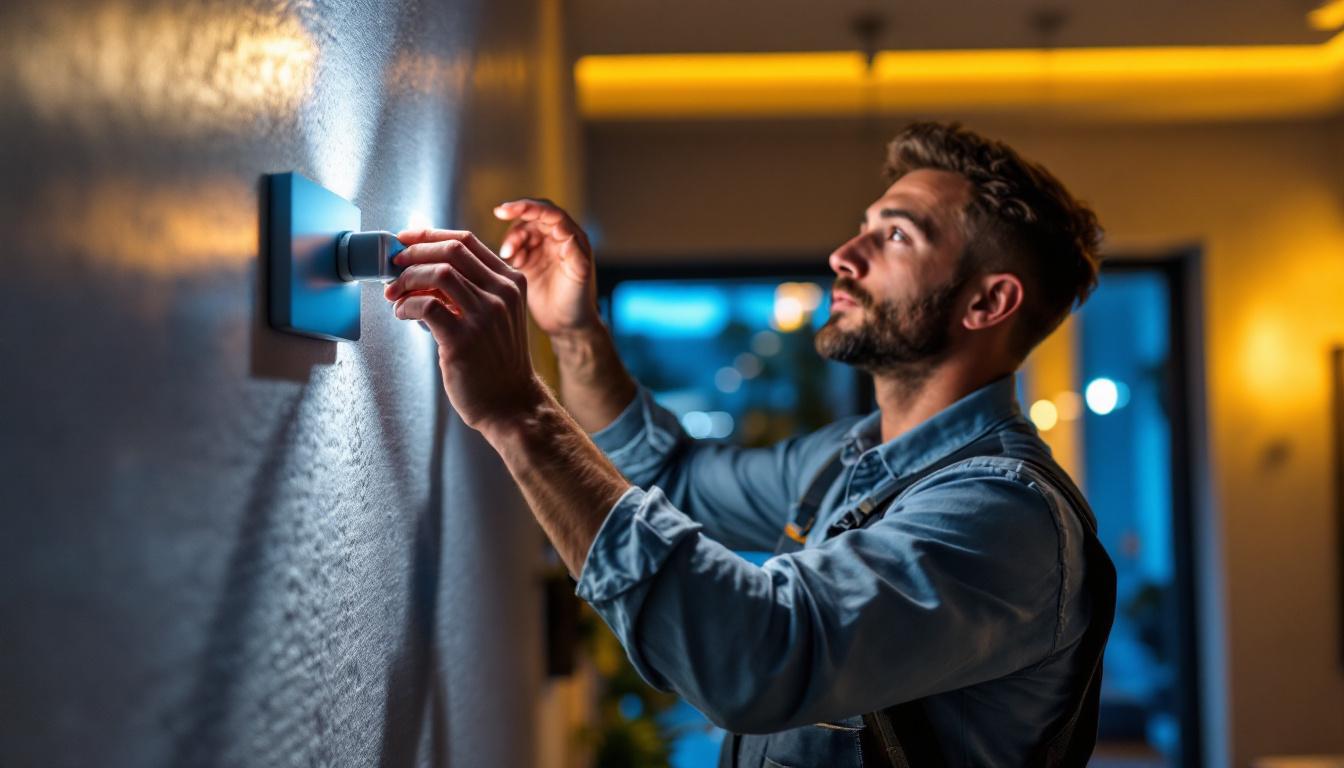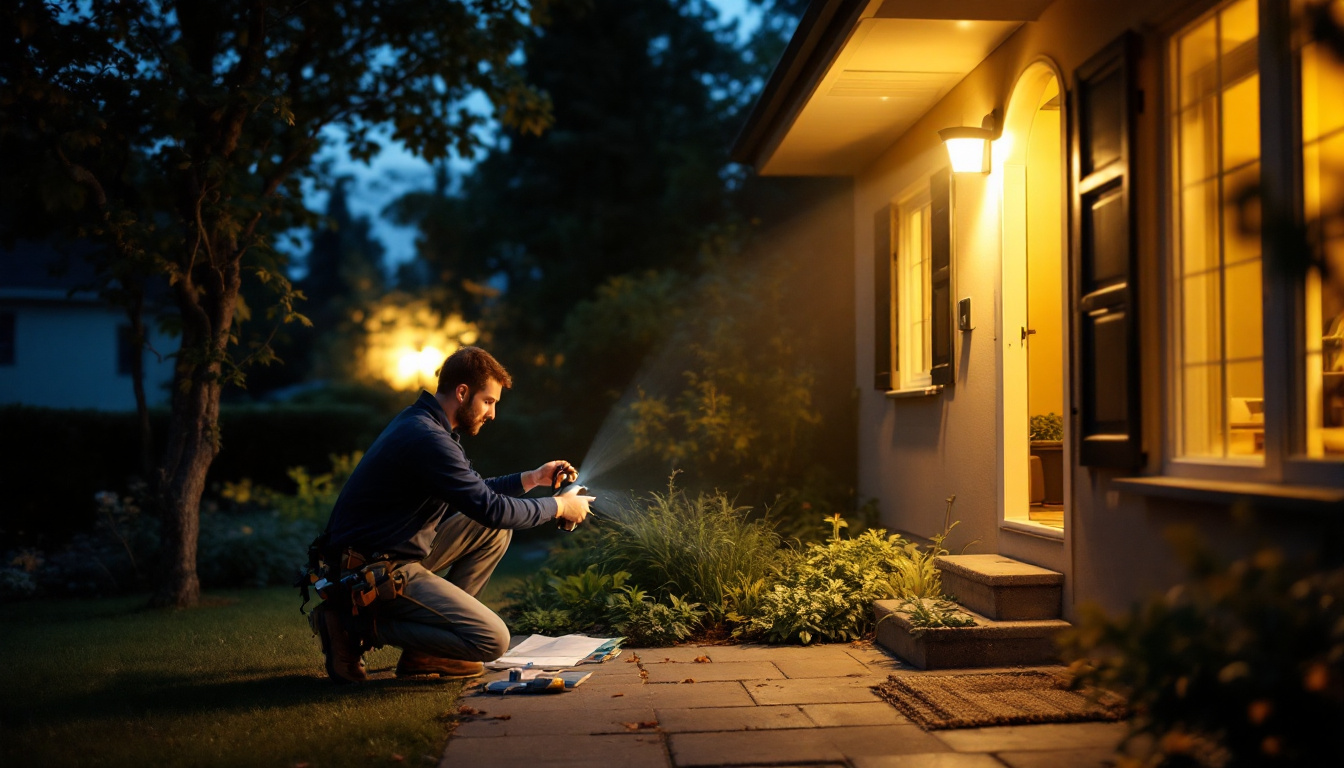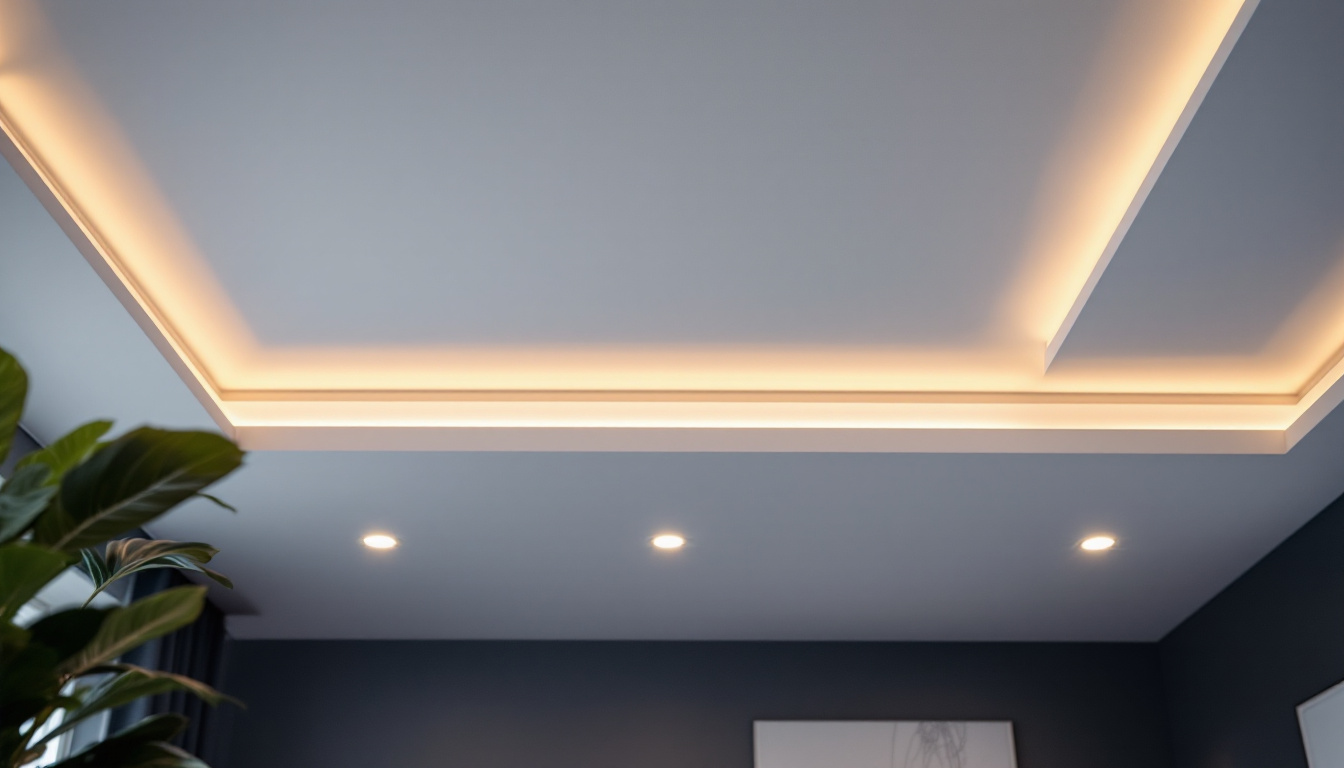
In the ever-evolving world of lighting design and installation, staying ahead of the curve is essential for lighting contractors. The integration of smart technologies into lighting systems has transformed the industry, presenting both opportunities and challenges. This article explores practical hacks and strategies that can help lighting contractors enhance their services, streamline their processes, and ultimately provide exceptional value to their clients.
Smart lighting technologies encompass a wide range of products and systems that allow for enhanced control, energy efficiency, and user convenience. From LED fixtures to sophisticated control systems, understanding these technologies is crucial for any lighting contractor aiming to stay competitive.
LED lighting has become the cornerstone of modern lighting solutions. Its energy efficiency, longevity, and versatility make it an ideal choice for both residential and commercial applications. Contractors should familiarize themselves with the different types of LED products available, including tunable white, RGB, and smart bulbs that can be controlled remotely.
In addition to understanding the products, it is vital to keep abreast of the latest advancements in LED technology. Innovations such as smart sensors and integrated controls can significantly enhance the functionality of lighting systems, allowing for features like automatic dimming, color adjustment, and occupancy sensing. Furthermore, the development of human-centric lighting, which adjusts the color temperature throughout the day to mimic natural light, is gaining traction. This approach not only improves mood and productivity but also promotes better sleep patterns, making it an attractive option for both homes and workplaces.
Smart lighting controls are a game changer for contractors. These systems allow users to manage their lighting through smartphones, tablets, or voice-activated devices. Familiarity with popular platforms such as Zigbee, Z-Wave, and Wi-Fi-based systems is essential. Each platform has its own strengths and weaknesses, and understanding these can help contractors recommend the best solutions for their clients.
Moreover, offering installation services for smart home ecosystems can set contractors apart from competitors. Integrating lighting with other smart home devices, such as security systems and thermostats, can create a holistic experience for users, enhancing comfort and convenience. Additionally, the ability to create customized lighting scenes for different activities—like movie nights, dinner parties, or work sessions—can greatly enhance the user experience. As more homeowners and businesses seek to adopt smart technologies, contractors who can provide tailored solutions and seamless integration will find themselves in high demand.
Clear and effective communication with clients is key to successful project execution. Understanding their needs and expectations can lead to better outcomes and higher satisfaction rates. It also establishes a foundation for a positive working relationship, which can be beneficial for future collaborations and referrals. When clients feel heard and valued, they are more likely to engage openly, sharing their thoughts and feedback throughout the project lifecycle.
Before embarking on any project, conducting a comprehensive consultation is crucial. This process involves discussing the client’s vision, budget, and specific requirements. By asking insightful questions and actively listening, contractors can gain valuable insights that will inform their design and installation choices. Additionally, it is important to create a welcoming environment during these consultations, where clients feel comfortable expressing their ideas and concerns. This can be achieved by adopting a friendly demeanor and showing genuine interest in their preferences.
During consultations, it is also beneficial to educate clients about the advantages of smart lighting. Many clients may not be aware of the energy savings, convenience, and enhanced aesthetics that smart lighting can provide. Providing visual aids, such as diagrams or product samples, can help clients visualize the possibilities. Furthermore, sharing case studies or testimonials from previous clients who have successfully integrated smart lighting can bolster their confidence in the proposed solutions, making them more likely to embrace innovative ideas.
Setting realistic expectations from the outset can prevent misunderstandings later in the project. Contractors should clearly outline timelines, costs, and potential challenges. Providing a detailed project plan can help clients understand what to expect at each stage of the process. It is also wise to discuss the importance of flexibility, as unforeseen circumstances can arise that may impact the original schedule or budget. By preparing clients for potential adjustments, contractors can mitigate frustration and foster a collaborative atmosphere.
Regular updates throughout the project can also enhance client satisfaction. Keeping clients informed about progress and any changes to the plan fosters trust and demonstrates professionalism. Utilizing various communication channels, such as emails, phone calls, or project management software, can cater to different client preferences and ensure that everyone stays on the same page. Additionally, encouraging client feedback during these updates can create a sense of ownership in the project, making them feel more invested in the outcome and reinforcing their commitment to the process.
Efficiency in installation not only saves time but also reduces costs, allowing contractors to maximize profitability. Implementing best practices can lead to smoother operations and happier clients.
Pre-planning is essential for successful installations. Utilizing software tools that allow for 3D modeling and simulation can help contractors visualize the project before any physical work begins. This approach enables better planning of fixture placements, wiring, and control systems.
Additionally, creating a checklist of necessary materials and tools before starting the project can streamline the installation process, ensuring that everything is on hand when needed. This minimizes downtime and keeps the project on track.
Investing in training and skill development for the installation team can significantly enhance efficiency. Regular workshops and training sessions on the latest technologies and installation techniques can empower contractors to tackle projects with confidence and expertise.
Moreover, staying updated on industry trends and best practices can help contractors adapt to changes and improve their service offerings. Networking with other professionals in the field can also provide valuable insights and tips.
Energy efficiency is a critical consideration for modern lighting systems. As clients become more environmentally conscious, offering energy-efficient solutions can set contractors apart and attract more business.
Conducting energy audits for clients can identify areas where energy savings can be achieved. By analyzing existing lighting systems and usage patterns, contractors can recommend upgrades or modifications that enhance efficiency.
For instance, replacing outdated fixtures with LED options or installing smart controls that optimize energy usage during peak hours can lead to significant savings. Providing clients with a detailed report of potential savings can also incentivize them to invest in energy-efficient solutions.
Education is key to promoting energy-efficient lighting solutions. Contractors should take the time to explain the benefits of energy-efficient products, including lower utility bills and reduced carbon footprints. Providing case studies or testimonials from previous clients can further reinforce the value of these solutions.
Additionally, informing clients about available rebates and incentives for energy-efficient upgrades can make the investment more appealing. Many utility companies offer programs that can help offset the costs of new installations, making it easier for clients to commit to energy-saving solutions.
In today’s digital age, leveraging technology can significantly enhance a lighting contractor’s business operations. From project management tools to marketing strategies, technology can streamline processes and improve client engagement.
Implementing project management software can help contractors keep track of multiple projects simultaneously. These tools can assist in scheduling, budgeting, and resource allocation, ensuring that projects are completed on time and within budget.
Moreover, many project management platforms offer collaboration features that allow team members to communicate effectively and share updates in real-time. This can enhance teamwork and ensure that everyone is on the same page throughout the project lifecycle.
Social media platforms offer an excellent opportunity for lighting contractors to showcase their work and engage with potential clients. Regularly posting project updates, tips, and industry news can help build a strong online presence and attract new business.
Engaging with followers through comments and messages can also foster relationships and encourage referrals. Additionally, utilizing paid advertising on social media can target specific demographics, ensuring that marketing efforts reach the right audience.
Establishing strong relationships with suppliers is crucial for lighting contractors. Reliable suppliers can provide quality products, timely deliveries, and valuable support, all of which contribute to successful projects.
Contractors should take the time to negotiate favorable terms with suppliers. Establishing long-term relationships can lead to better pricing, priority service, and access to the latest products. Building rapport with suppliers can also lead to exclusive offers and promotions that can benefit the contractor’s business.
Regularly communicating with suppliers about upcoming projects can help ensure that they are prepared to meet demand. This proactive approach can prevent delays and keep projects on schedule.
Suppliers often have insights into the latest products and technologies in the lighting industry. By maintaining open lines of communication, contractors can stay informed about new offerings that may benefit their clients. Attending supplier events and product launches can also provide valuable learning opportunities.
Furthermore, contractors can leverage supplier expertise to enhance their own knowledge. Many suppliers offer training sessions or resources that can help contractors better understand how to integrate new products into their installations.
The landscape of lighting design and installation is rapidly changing, and lighting contractors must adapt to remain competitive. By embracing smart technologies, enhancing client communication, streamlining installation processes, maximizing energy efficiency, leveraging technology, and building strong supplier relationships, contractors can position themselves for success in this dynamic industry.
Implementing these hacks can lead to improved project outcomes, increased client satisfaction, and ultimately, a thriving business. As the demand for smart lighting solutions continues to grow, contractors who stay informed and proactive will be well-equipped to meet the needs of their clients and excel in the marketplace.
Ready to elevate your lighting game and give your clients the smart, energy-efficient solutions they deserve? Look no further than LumenWholesale, where we specialize in providing contractors like you with the highest quality, spec-grade lighting products at unbeatable wholesale prices. Say goodbye to middleman markups and hello to a vast selection of reliable lighting that meets the strictest industry standards. Plus, with free shipping on bulk orders, you can rest assured that you’re getting premium lighting at the best value — without any hidden fees. Don’t compromise on quality, affordability, or convenience. Make the smart choice and Wholesale Lighting at the Best Value with LumenWholesale today.

Discover how outdoor LED flood lights are revolutionizing the work of lighting contractors.

Discover how lighting contractors can master low bay LED lights to boost efficiency, reduce costs by up to 50%, and enhance space illumination—start optimizing your projects today!.

Discover how gas station lights enhance safety, visibility, and energy efficiency in modern lighting solutions.

Discover the advantages of flush mounted lights for lighting contractors, including space-saving designs, enhanced aesthetics, and energy efficiency.